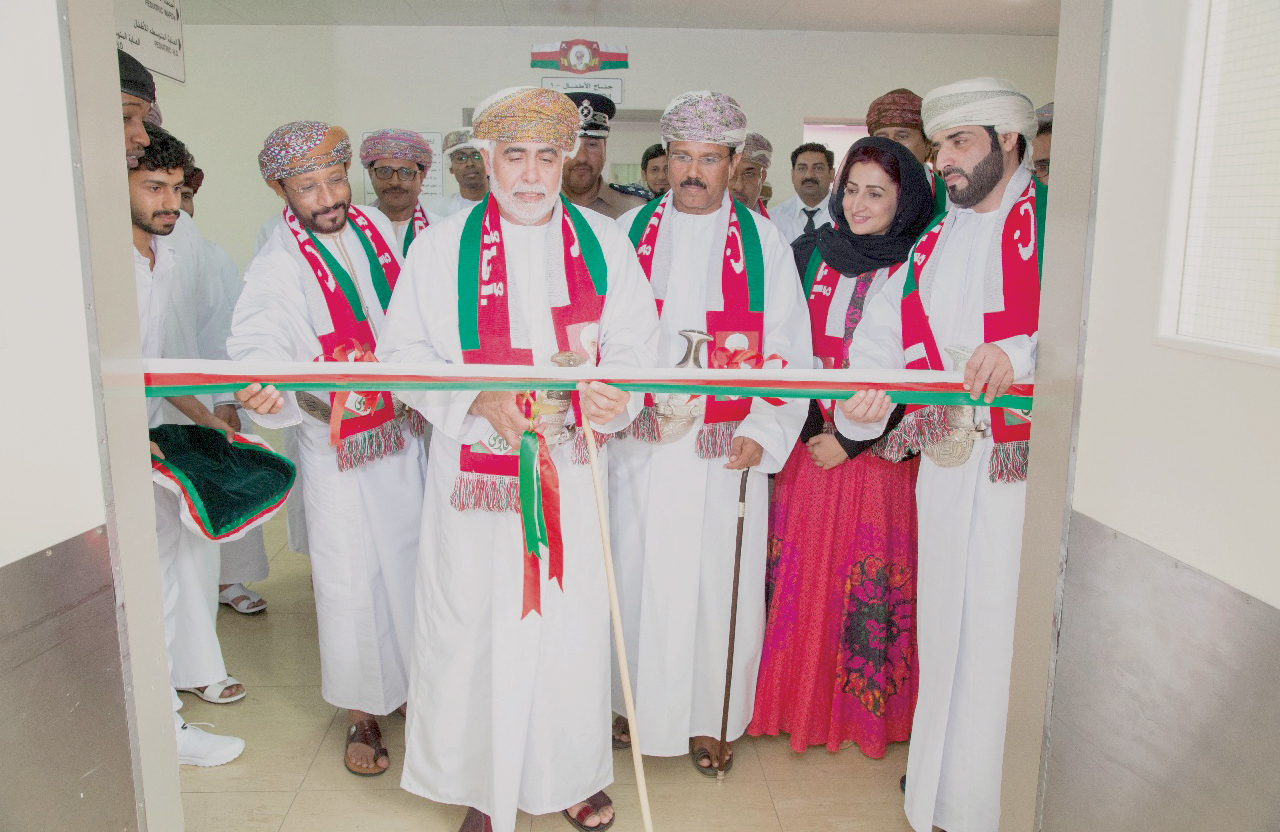

SALALAH, Nov 11 - A stroke unit opened at the Sultan Qaboos Hospital (SQH) on Sunday with eight dedicated beds under the Neurology Department of the hospital. Among the eight beds, four are meant for male and four for female patients. Dr Sultan bin Yarub al Busaidi, Ministry of Health’s Adviser for Health Affairs, inaugurated the unit. Dr Khalid al Mushekhi, Director-General of Health Service in Dhofar, called the opening of the stroke unit as a value addition to the hospital, which has gone through several upgrades in recent times.
Dr Naser al Awaid, Head of Internal Medicine at Department at the SQH, said the stroke unit at the hospital holds great importance due to several such cases coming to the hospital frequently that needed urgent and specialised attention. “There are two major kinds of stroke — ischemic and hemorrhagic. In an ischemic stroke a blood vessel becomes blocked, usually by a blood clot and a portion of the brain becomes deprived of oxygen and will stop functioning, while hemorrhagic stroke occurs when a blood vessel that carries oxygen and nutrients to the brain burst and spills blood into the brain. When this happens, a portion of the brain becomes deprived of oxygen and will stop functioning.”
He suggested rapid diagnosis and treatment to reduce death and disability from stroke. “This new unit is equipped with medication and physiotherapy services. Strokes happen mainly due to high blood pressure or hypertension, carotid or coronary artery disease, elevated levels of cholesterol and diabetes. The best way to prevent strokes is to do some regular exercises, diet control and lifestyle control.”
Commenting on the facilities associated to treat stroke, Dr Naser said, “The facilities at the hospital are integrated. Quick intervention is very important in stroke. The patients are given drug to dissolve the clot in the golden period of the injury which extends up to four hours-and-a-half of injury. The facility like CT scan contributes highly to reduce time and effort in detecting stroke.” He said a stroke unit is important from the view of giving specialised care and follow up. The unit is essential to ensure recovery of patients suffering from partial paralysis due to thrombosis mode.
Dr Amal al Hashmi, Head of Stroke Unit at Khawla Hospital in Muscat, said stroke cases need maximum care as they occupy second place in the list of injuries causing death, and the third in causing disability. She cautioned that the stroke was no longer a disease affecting only the elderly. “Due to lifestyle changes, stroke has started affecting the youngsters as well.” A national protocol, according to her, decided to deal with stroke cases with specialised equipment. “The protocol resulted in the opening of four stroke units at Sohar Hospital, Khawla Hospital, Nizwa Hospital and now at Sultan Qaboos Hospital,” she said.
Kaushalendra Singh
Oman Observer is now on the WhatsApp channel. Click here



